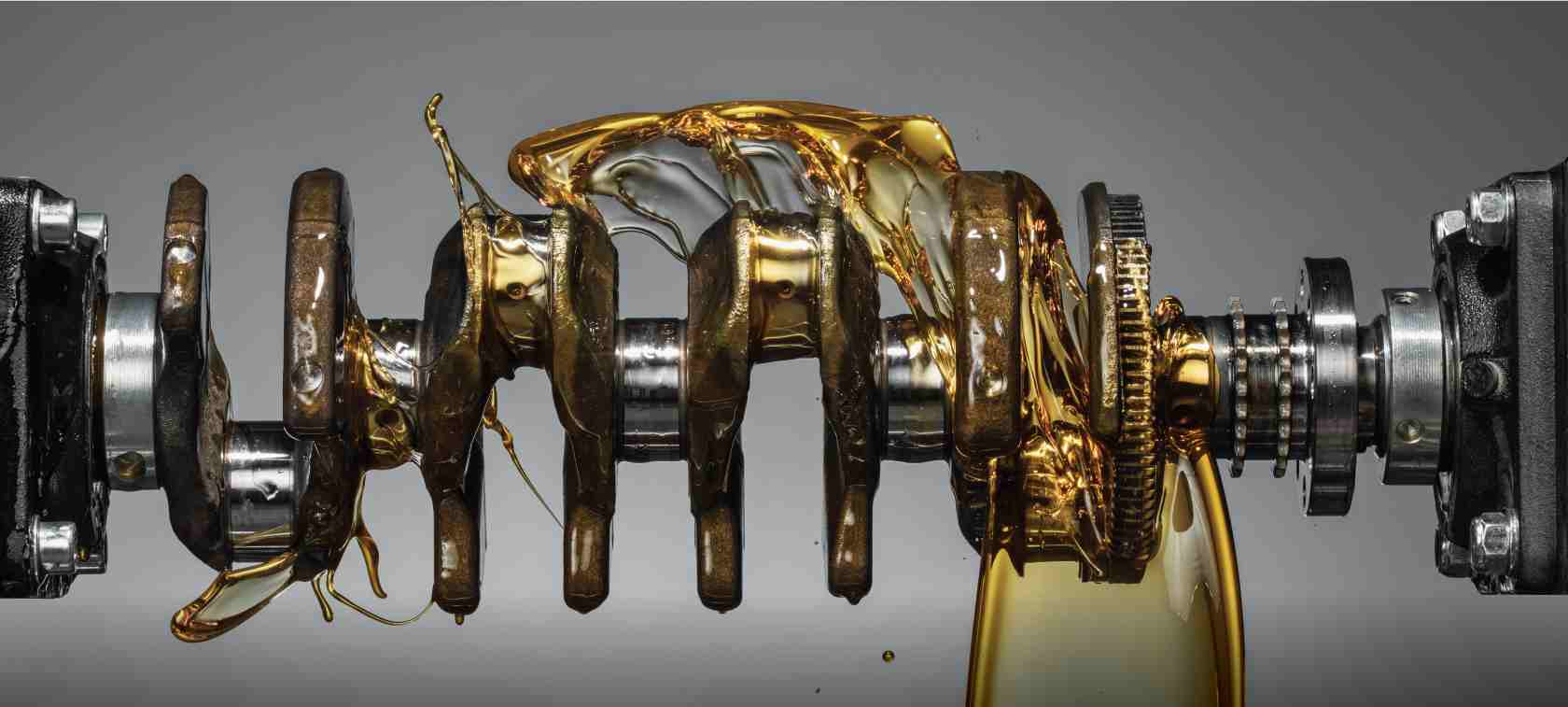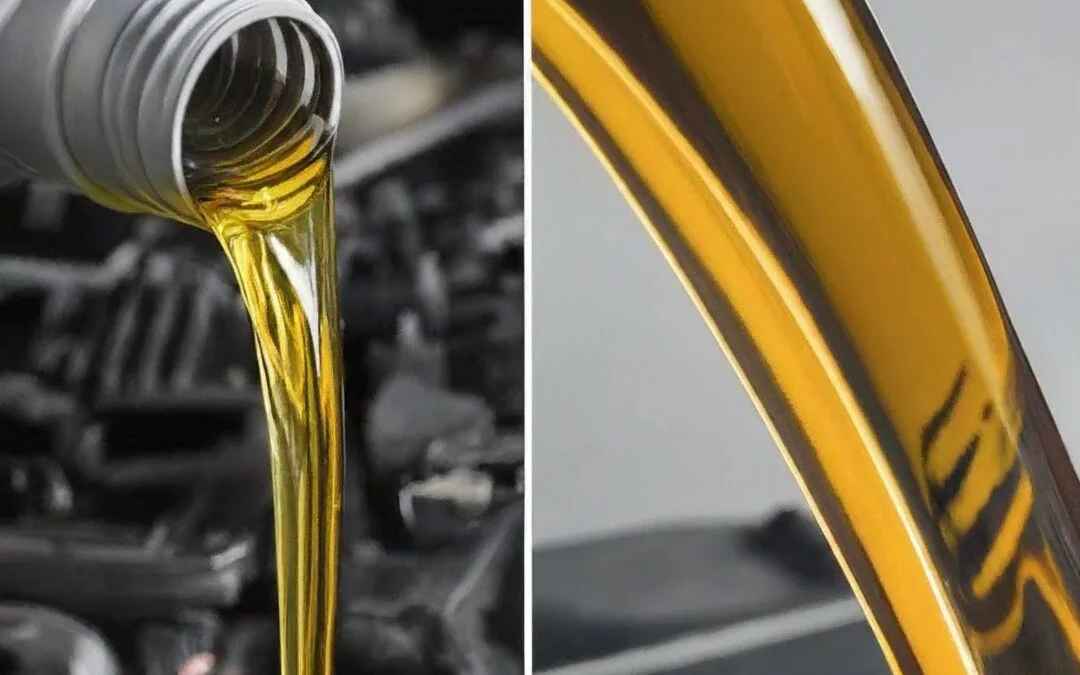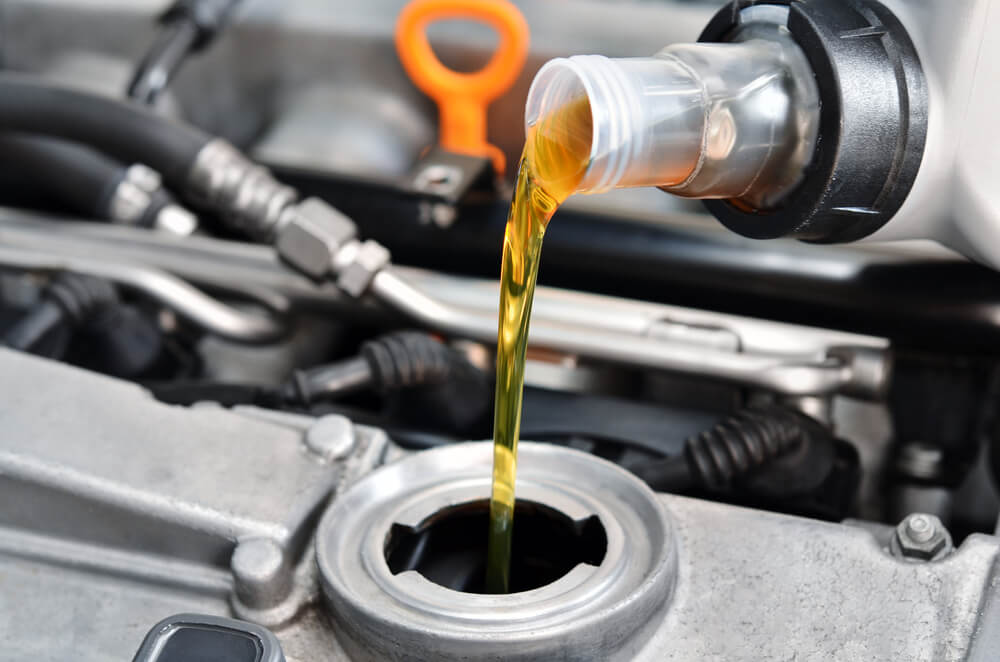Title: Choosing the Right Motor Oil for Your BMW: A Comprehensive Guide
Introduction:
Navigating the labyrinth of motor oil options for your BMW can feel like embarking on a quest through a dense forest of technical jargon and conflicting advice. As a proud owner of a BMW, you understand the significance of every component under the hood, and the motor oil you choose is no exception. It’s not merely about lubricating the engine; it’s about ensuring peak performance, longevity, and preserving the precision engineering that defines your BMW driving experience.
In this comprehensive guide, we’ll illuminate the path forward, shedding light on the complexities of BMW motor oil selection. Whether you’re a seasoned enthusiast or a new owner, understanding the nuances of BMW motor oil specifications, factors influencing your choice, and the best options available will empower you to make informed decisions and safeguard the heart of your BMW.
Join us as we unravel the mysteries surrounding motor oil for BMW vehicles, providing clarity amidst the confusion and equipping you with the knowledge to nurture your BMW’s engine to perfection.
Explanation of BMW Longlife-01 and BMW Longlife-04 specifications
BMW Longlife-01 and BMW Longlife-04 specifications serve as beacons guiding BMW owners towards optimal engine performance and longevity. Understanding these specifications is paramount for ensuring that your BMW receives the appropriate care it deserves.
- BMW Longlife-01: Precision Engineering Unveiled
BMW Longlife-01 represents a meticulous standard crafted specifically for petrol (gasoline) engines in BMW vehicles. This specification sets forth stringent requirements, encompassing not only the oil’s viscosity but also its ability to withstand the demands of modern engine technologies.
- Viscosity Excellence: Longlife-01 oils must meet precise viscosity grades, ensuring smooth lubrication across a spectrum of operating conditions. This viscosity stability guarantees proper engine protection, even in extreme temperatures or under high-performance driving.
- Advanced Additive Formulations: These oils are fortified with advanced additive packages, engineered to combat wear, reduce friction, and inhibit the formation of harmful deposits. Such formulations optimize engine cleanliness and performance over extended drain intervals, characteristic of BMW’s Longlife maintenance schedule.
- Compatibility Assurance: BMW Longlife-01 oils are meticulously tested and validated to ensure compatibility with the intricate components of BMW petrol engines. This compatibility fosters seamless integration, mitigating the risk of adverse reactions and preserving engine integrity.
2. BMW Longlife-04: Diesel Dominance Defined
Tailored explicitly for BMW diesel engines, Longlife-04 specifications elevate performance and reliability in diesel-powered BMW vehicles. These specifications reflect BMW’s commitment to engineering excellence, delivering oils optimized to meet the unique demands of diesel engine technology.
- Diesel-Specific Requirements: Longlife-04 oils are formulated to address the distinct challenges posed by diesel engines, including higher combustion temperatures and increased soot production. As such, they exhibit enhanced thermal stability and superior soot-handling capabilities, safeguarding diesel engines against premature wear and degradation.
- Low-SAPS Formulations: Recognizing the importance of emissions control in modern diesel vehicles, Longlife-04 oils feature low-SAPS (Sulfated Ash, Phosphorus, and Sulfur) formulations. These low-emission oils minimize the accumulation of harmful deposits in exhaust after-treatment systems, ensuring compliance with stringent emissions regulations while maintaining optimal engine performance.
- Longevity and Efficiency: Longlife-04 oils are engineered to facilitate extended drain intervals, maximizing convenience for BMW diesel owners without compromising engine protection or efficiency. By extending service intervals, Longlife-04 oils contribute to reduced maintenance costs and enhanced overall ownership experience.
In essence, BMW Longlife-01 and Longlife-04 specifications epitomize BMW’s unwavering commitment to excellence, providing BMW owners with oils meticulously crafted to meet the exacting standards of precision engineering. By adhering to these specifications, you ensure that your BMW’s engine receives the care it deserves, enabling it to perform at its peak for miles to come.
Importance of adhering to manufacturer recommendations
Adhering to manufacturer recommendations regarding motor oil selection is not merely a suggestion but a fundamental aspect of responsible vehicle ownership, especially when it comes to know what motor oil for BMW. Here’s why it’s imperative to follow these guidelines:
- Preservation of Engine Performance: BMW engineers invest years in designing and refining engines to deliver exceptional performance and efficiency. Manufacturer recommendations for motor oil are crafted with intimate knowledge of these engines, ensuring that the lubricant chosen provides optimal protection and performance. Deviating from these recommendations could compromise engine efficiency, leading to reduced power output, increased fuel consumption, and potential mechanical issues.
- Warranty Compliance: Many vehicle warranties stipulate that maintenance, including oil changes, must adhere to manufacturer specifications to remain valid. Failing to use the recommended motor oil could void the warranty, leaving you financially vulnerable in the event of a mechanical failure or issue covered under warranty. By following manufacturer recommendations, you not only protect your engine but also safeguard your investment and warranty coverage.
- Engine Longevity and Reliability: The right motor oil plays a critical role in preserving the longevity and reliability of your BMW’s engine. Manufacturer-recommended oils are formulated to meet the specific needs of BMW engines, including viscosity requirements, additive packages, and compatibility with engine components. By using the recommended oil, you ensure optimal lubrication, protection against wear, and minimized risk of engine damage, ultimately extending the lifespan of your vehicle.
- Optimal Fuel Efficiency: Engine oils that meet manufacturer specifications are engineered to minimize friction and maximize efficiency, contributing to improved fuel economy. Using the correct oil helps maintain engine cleanliness, reduces internal friction, and ensures proper sealing, all of which are essential for achieving optimal fuel efficiency. Deviating from manufacturer recommendations may compromise these benefits, leading to decreased fuel economy and increased operating costs over time.
- Resale Value and Reputation: Adherence to manufacturer recommendations demonstrates conscientious ownership and maintenance practices, which can positively impact the resale value of your BMW. Prospective buyers often prioritize vehicles with documented maintenance history and adherence to manufacturer guidelines, viewing them as more reliable and desirable. Additionally, following recommendations fosters a positive reputation among BMW enthusiasts and communities, enhancing the prestige and credibility of your vehicle.
In summary, adhering to manufacturer recommendations for motor oil selection is paramount for preserving engine performance, warranty compliance, longevity, fuel efficiency, and overall vehicle value. By prioritizing these recommendations, you not only safeguard your BMW’s engine but also uphold its reputation for excellence and reliability.
How to identify motor oils that meet BMW specifications
Identifying motor oils that meet BMW specifications is crucial for ensuring optimal engine performance and longevity. Here’s a streamlined guide to help you navigate the process effectively:
- Consult the Owner’s Manual: The first step in identifying motor oils that meet BMW specifications is to consult your vehicle’s owner’s manual. BMW meticulously outlines the recommended motor oil specifications, including viscosity grades, performance standards (such as Longlife-01 or Longlife-04), and any specific brand recommendations. The owner’s manual serves as your primary reference point and provides invaluable guidance tailored to your BMW model and engine type.
- Look for BMW Longlife Approval: BMW grants approval to motor oils that meet its stringent performance standards, denoted by the “BMW Longlife” specification. When selecting motor oils, look for products labeled with BMW Longlife approval, indicating that they have undergone rigorous testing and meet BMW’s exacting requirements. These approved oils are specifically formulated to deliver optimal engine protection and performance in BMW vehicles.
- Check for API and ACEA Specifications: In addition to BMW Longlife approval, motor oils suitable for BMW vehicles should meet industry-standard performance specifications set by organizations such as the American Petroleum Institute (API) and the European Automobile Manufacturers’ Association (ACEA). Look for motor oils that carry the API “SN” (for gasoline engines) or “CJ-4” (for diesel engines) classification, as well as ACEA specifications like “A3/B4” or “C3,” which are compatible with BMW engines.
- Verify Viscosity Grades: BMW specifies particular viscosity grades suitable for its engines, typically indicated by numerical values such as “0W-30,” “5W-30,” or “5W-40.” These viscosity grades determine the oil’s flow characteristics and suitability for different operating conditions. Refer to your owner’s manual to identify the recommended viscosity grade for your BMW model and engine, and ensure that the motor oil you select matches these specifications.
- Choose High-Quality Synthetic Oils: BMW generally recommends high-quality synthetic oils for its modern engines, as they offer superior performance, durability, and protection compared to conventional oils. Look for motor oils labeled as “full synthetic” or “synthetic blend,” as they are formulated to meet the demanding requirements of BMW engines and provide enhanced lubrication, cleanliness, and wear protection.
- Seek Recommendations from BMW Enthusiast Communities: Engaging with BMW enthusiast forums, online communities, or consulting with experienced BMW owners can provide valuable insights and recommendations regarding motor oil selection. Fellow enthusiasts often share their firsthand experiences with different motor oils, offering valuable guidance on which products perform best in real-world driving conditions.
By following these steps and carefully selecting motor oils that meet BMW specifications, you can ensure that your BMW engine receives the highest level of protection and performance, maintaining its exceptional driving experience for years to come.
Factors to Consider When Choosing Motor Oil for BMW
Choosing the right motor oil for your BMW involves considering several crucial factors to ensure optimal engine performance and longevity. Here’s a concise breakdown of the key factors to keep in mind:
- BMW Model and Year: Different BMW models and model years may have varying engine specifications and requirements. Consult your vehicle’s owner’s manual to identify the specific motor oil recommendations tailored to your BMW model and year. Understanding these specifications ensures compatibility and optimal performance.
- Climate and Driving Conditions: Climate and driving conditions play a significant role in determining the viscosity grade and performance characteristics of the motor oil you choose. In colder climates, opt for lower viscosity oils (e.g., 0W-30) to ensure easier cold-start lubrication, while hotter climates may necessitate higher viscosity oils (e.g., 5W-40) for improved engine protection under high temperatures or heavy loads.
- Synthetic vs. Conventional Oils: BMW typically recommends synthetic oils for its modern engines due to their superior performance, durability, and thermal stability. Synthetic oils offer enhanced protection against wear, oxidation, and sludge buildup compared to conventional oils. While synthetic oils may come at a higher initial cost, they provide long-term benefits and are particularly well-suited for high-performance BMW engines.
- Viscosity Ratings: Viscosity ratings denote the oil’s flow characteristics and its ability to maintain proper lubrication under different operating conditions. Refer to your BMW owner’s manual for the recommended viscosity grade(s) suitable for your engine. Common viscosity grades for BMW vehicles include 0W-30, 5W-30, and 5W-40, with the first number indicating viscosity in cold temperatures and the second number representing viscosity at operating temperatures.
- Additive Packages: Pay attention to the additive packages incorporated into the motor oil formulation. BMW-approved oils often contain specialized additives designed to improve engine cleanliness, reduce friction, enhance fuel efficiency, and protect against wear and corrosion. High-quality additive packages contribute to prolonged engine life and optimized performance.
Considering these factors when choosing motor oil for your BMW ensures that you select a product tailored to your vehicle’s specific needs and operating conditions. By adhering to manufacturer recommendations and selecting high-quality oils, you can safeguard your BMW engine against premature wear, maintain peak performance, and enjoy a smooth driving experience for miles to come.
Recommended Motor Oils for BMW
Selecting the right motor oil for your BMW is essential to ensure optimal engine performance, longevity, and reliability. While BMW provides specific recommendations for motor oils in its owner’s manuals, there are several reputable brands and products that consistently meet or exceed BMW’s stringent standards. Here are some recommended motor oils for BMW vehicles:
- Castrol EDGE 0W-30 (LL01):
- Castrol EDGE 0W-30 LL01 is one of the most widely recommended motor oils for BMW vehicles, particularly those requiring Longlife-01 specification.
- Formulated with Fluid Titanium Technology, this full synthetic oil offers exceptional protection against wear, deposit buildup, and thermal breakdown, even under extreme driving conditions.
- Its low viscosity ensures rapid oil circulation during cold starts, promoting improved fuel efficiency and engine responsiveness.
2. Shell Rotella T6 Full Synthetic 5W-40 (LL04):
- Shell Rotella T6 Full Synthetic 5W-40 is an excellent choice for BMW diesel engines requiring Longlife-04 specification.
- Designed with Triple Protection Plus technology, this synthetic oil delivers enhanced wear protection, improved fuel economy, and extended drain intervals.
- Its low-SAPS (Sulfated Ash, Phosphorus, and Sulfur) formulation minimizes emissions and helps preserve the integrity of modern diesel engine exhaust after-treatment systems.
3. Mobil 1 0W-40 (LL01):
- Mobil 1 0W-40 is a premium synthetic motor oil that meets BMW Longlife-01 specifications.
- Engineered with advanced additives, including Mobil’s proprietary SuperSyn technology, this oil provides superior protection against engine wear, deposits, and sludge formation.
- Its high-performance formula ensures excellent lubrication and engine cleanliness, maintaining optimal performance and reliability over extended drain intervals.
4. Pennzoil Platinum Euro Full Synthetic 5W-30 (LL01):
- Pennzoil Platinum Euro Full Synthetic 5W-30 is specifically formulated to meet the requirements of BMW Longlife-01 specification.
- Enhanced with PurePlus Technology, this synthetic oil offers superior oxidation stability, thermal resistance, and cleanliness, ensuring maximum engine protection and longevity.
- Its low-viscosity formulation promotes improved fuel economy and cold-start performance, making it ideal for use in a wide range of BMW gasoline engines.
5. Motul 8100 X-Clean+ 5W-30 (LL04):
- Motul 8100 X-Clean+ 5W-30 is a high-performance synthetic motor oil designed for BMW diesel engines requiring Longlife-04 specification.
- Engineered with Technosynthese technology, this oil provides exceptional wear protection, deposit control, and thermal stability, even in demanding driving conditions.
- Its low-SAPS formulation ensures compatibility with diesel particulate filters (DPFs) and other emission control systems, maintaining engine efficiency and reducing environmental impact.

When selecting a motor oil for your BMW, it’s crucial to choose a product that meets the specific requirements outlined in your vehicle’s owner’s manual. Additionally, opt for oils from reputable brands known for their quality, performance, and compatibility with BMW engines. By using recommended motor oils and adhering to manufacturer guidelines, you can ensure that your BMW engine receives the care it deserves, delivering unparalleled performance and reliability mile after mile.
DIY vs. Professional Oil Change for BMW
Deciding between a DIY oil change and a professional service for your BMW can be a pivotal choice in maintaining the health and longevity of your vehicle’s engine. Both options have their merits, but understanding the considerations associated with each approach is crucial. Here’s a comprehensive comparison to help you make an informed decision:
DIY Oil Change:
- Cost-Effectiveness: Performing an oil change yourself can be significantly more cost-effective than visiting a dealership or mechanic. By purchasing the necessary oil, filter, and tools upfront, you can save on labor costs associated with professional services.
- Convenience: DIY oil changes offer the convenience of scheduling the maintenance task at your preferred time and location. You have full control over the process and can avoid the hassle of scheduling appointments or waiting for service at a dealership or garage.
- Knowledge and Empowerment: Engaging in DIY maintenance fosters a deeper understanding of your BMW’s mechanical components and promotes a sense of empowerment as a vehicle owner. It allows you to take a hands-on approach to caring for your car and fosters a stronger connection with your vehicle.
- Customization: DIY oil changes enable you to customize the oil and filter selection according to your preferences and specifications. You can choose high-quality oils and filters that meet or exceed BMW’s recommendations, ensuring optimal engine protection and performance.
Professional Oil Change:
- Expertise and Experience: Professional technicians possess specialized training, expertise, and experience in servicing BMW vehicles. They are familiar with the intricacies of BMW engines and can perform oil changes efficiently and accurately, minimizing the risk of errors or complications.
- Warranty Compliance: Having your oil changed by a certified technician at a dealership or authorized service center ensures that the maintenance is performed according to BMW’s specifications. This helps maintain warranty coverage and protects your investment in case of future mechanical issues.
- Comprehensive Inspection: Professional oil change services often include a comprehensive inspection of your BMW’s vital systems and components. Technicians can identify potential issues or maintenance needs early on, allowing for timely repairs or preventative measures to be taken.
- Convenience and Time Savings: While DIY oil changes offer flexibility, professional services can save you time and effort by providing swift, streamlined maintenance. You can drop off your BMW for an oil change and have peace of mind knowing that trained professionals are handling the task efficiently.
Ultimately, the decision between DIY and professional oil changes for your BMW depends on your preferences, skill level, and budget. If you have the knowledge, tools, and confidence to perform DIY maintenance correctly, it can be a rewarding and cost-effective option. However, if you prefer the assurance of expert service, warranty compliance, and comprehensive care, entrusting your BMW to professionals may be the optimal choice. Whichever route you choose, prioritizing regular oil changes and maintenance is essential for preserving the performance and reliability of your BMW for years to come.
Conclusion
In conclusion, selecting the right motor oil for your BMW is a critical aspect of responsible vehicle ownership. By adhering to manufacturer recommendations, considering factors such as climate and driving conditions, and choosing high-quality oils that meet BMW specifications, you can ensure optimal engine performance, longevity, and reliability.
Whether you opt for a DIY oil change or entrust the task to professional technicians, regular maintenance is paramount for preserving the integrity of your BMW’s engine. By prioritizing proper lubrication and protection, you can enjoy a smooth driving experience, maximize fuel efficiency, and safeguard your investment in your BMW for miles to come. Remember, your BMW’s engine is a finely tuned masterpiece of engineering, and selecting the right motor oil is a crucial step in maintaining its peak performance and longevity. With careful consideration and attention to detail, you can nurture your BMW’s engine to perfection, ensuring that it continues to deliver the exhilarating driving experience that BMW enthusiasts cherish
Useful link
https://www.bimmerworld.com/BMW-Engine-Oil/
FAQs about Motor Oil for BMW
- What type of motor oil does BMW recommend?
- BMW typically recommends synthetic motor oils that meet specific BMW Longlife specifications, such as Longlife-01 for gasoline engines and Longlife-04 for diesel engines. These oils are engineered to provide optimal performance and protection for BMW engines.
2. Can I use any motor oil in my BMW?
- It’s essential to use motor oils that meet BMW’s specifications outlined in your vehicle’s owner’s manual. While some oils may meet basic industry standards, using oils that do not meet BMW’s requirements could compromise engine performance, longevity, and warranty coverage.
3. How often should I change the motor oil in my BMW?
- BMW recommends following the service intervals outlined in your owner’s manual, which typically range from 7,500 to 10,000 miles, depending on driving conditions and engine type. However, it’s essential to monitor oil levels regularly and adhere to more frequent oil changes if driving under severe conditions.
4. What happens if I use the wrong motor oil in my BMW?
- Using motor oil that does not meet BMW’s specifications can lead to premature engine wear, reduced performance, and potential warranty issues. Different engine types require specific oil formulations to ensure proper lubrication, protection, and compatibility with engine components.
5. Can I mix different brands or viscosities of motor oil in my BMW?
- It’s generally not recommended to mix different brands or viscosities of motor oil in your BMW, as this can alter the oil’s performance characteristics and potentially compromise engine protection. Stick to a single high-quality oil that meets BMW’s specifications for optimal results.
6. Do I need to use BMW-branded motor oil?
- While BMW-branded motor oil is available, it’s not necessarily required for proper engine maintenance. However, it’s crucial to use oils that meet BMW’s specifications for viscosity, performance standards, and additive packages to ensure compatibility and protection.
7. Can I switch from conventional to synthetic motor oil in my BMW?
- Yes, you can switch from conventional to synthetic motor oil in your BMW, provided that the synthetic oil meets BMW’s specifications outlined in your owner’s manual. Synthetic oils offer superior performance, protection, and longevity compared to conventional oils and are often recommended for BMW engines.
8. What are the consequences of not changing the motor oil in my BMW regularly?
- Neglecting regular oil changes can lead to accelerated engine wear, reduced performance, increased fuel consumption, and potential engine damage. Over time, contaminated or degraded oil can cause internal components to wear prematurely, leading to costly repairs or even engine failure.
9. Can I perform a DIY oil change on my BMW, or should I go to a dealership or mechanic?
- Whether you perform a DIY oil change or visit a dealership or mechanic depends on your skill level, equipment availability, and preference. If you’re confident in your abilities and have the necessary tools, DIY oil changes can be cost-effective and rewarding. However, professional services offer expertise, warranty compliance, and comprehensive maintenance inspections for added peace of mind.
10. Where can I find BMW-approved motor oils?
- BMW-approved motor oils are available at authorized BMW dealerships, automotive supply stores, and online retailers. Look for oils that meet BMW’s Longlife specifications and carry the appropriate approvals outlined in your owner’s manual for optimal engine protection and performance.





Leave a Reply